|
As the mother of a young toddler, I’ve found that life is moving pretty quickly. One moment I’m running after him so he doesn’t grab the dog’s water bowl, and the next, I’m reading his little children’s Bible for the third time in 5 minutes. I’m finding that my toddler is learning so much from his environment. Every day, he can say new words or hum or sing or dance. When I hear him say, “Mama and Vinny,” I just stop and think about Mary.
I love to imagine her as Jesus’ mother: patient and loving, giving hugs, teaching him and walking among flowers. I picture the two of them laughing and playing in the sunshine filled with joy. But I also imagine her with Jesus throughout his life. I start by thinking of Jesus as a toddler--maybe when they were still in Egypt. He likely picked up sand and tried to eat it like my little one would or looked at a camel or water and began to say his first words. Then, I can imagine Mary and Joseph both searching for Jesus while he was not where they thought he should be, but instead in the Temple with teachers showing how much he knew about Scripture. She would be proud of him and his knowledge, maybe with a pang of understanding of his purpose on earth. Then I imagine later on in his first miracle at the wedding at Cana, when she really knew it was time for Jesus to begin his ministry. She supported her son, but also knew it was time to begin God’s work. Meditating on different Scripture passages and moments in the life of Christ can deepen our relationship not only with him, but with the many powerful witnesses to the faith like Our Blessed Mother. Reflecting on moments with my toddler and my own motherhood has strengthened my relationship with Mary over this past year. In this month of May, let us turn to Christ’s Mother and celebrate her motherhood to all of us. Mense Maio, an encyclical by Pope Paul VI which came out on April 29th, 1965 discusses prayer during May for the preservation of peace and the powerful intercession of our Blessed Mother in a variety of ways. As I was reading, I liked how Pope Paul VI mentioned different areas that need our prayers. In the twelfth section of the document called “Plea for Mary’s Help,” he writes, “she graciously lend(s) an ear to the devout pleas of those all over the world who beg her for peace.” As we begin the Marian month of May, let us think about the people in our lives, maybe those marginalized or neglected who are in desperate need for our prayers and petitions. Let us turn to Our Blessed Mother and beg her for peace in our lives and throughout the world. To read more blog posts about the Blessed Virgin Mary, please click here.
0 Comments
“Because children have abounding vitality, because they are in spirit fierce and free, therefore they want things repeated and unchanged. They always say, "Do it again"; and the grown-up person does it again until he is nearly dead. For grown-up people are not strong enough to exult in monotony. But perhaps God is strong enough to exult in monotony. It is possible that God says every morning, "Do it again" to the sun; and every evening, "Do it again" to the moon. It may not be automatic necessity that makes all daisies alike; it may be that God makes every daisy separately, but has never got tired of making them. It may be that He has the eternal appetite of infancy; for we have sinned and grown old, and our Father is younger than we.” G.K. Chesterton, Orthodoxy Today on the feast day of St. Therese of Lisieux, affectionately known as the Little Flower, I turn to my sons’ example in accepting everything completely from God. My almost two-year-old is predictable: he loves blueberries, watching the garbage truck pick up trash on Mondays and Fridays, and playing in the backyard. Recently he has taken to playing with a giant cardboard box that my husband engineered into a “cottage” with a window and a workable door. The joy and excitement he exudes each morning playing with his cardboard cottage didn’t strike me at first. But after a few rounds of him serving me imaginary chocolate milk and tea from his little abode, I realized that this joy, the same joy and freedom he has when running ferociously to the front of the house to see the garbage being picked up, is the joy and freedom St. Therese of Lisieux wrote about and emulated in her life. “To remain a child before God means to recognize our nothingness, to expect everything from God. It is not to become discouraged over our failings, for our children fall often, but they themselves are too little to hurt themselves very much.” St. Therese of Lisieux Therese gives us the example of radical abandonment to the Father’s will. When we take a snapshot of her life—where she lived most of her life, whom she met, what accolades she was awarded—we see that her life was not much in worldly standards. And yet, Therese is honored with the title “Doctor of the Church.” Her writings and her example of charity beckon us to take a closer look at this simple and great saint. While Saint Therese is a heavily pestered saint when it comes to intercession (as her intercession is known to be great) and her quotes are seen often, today let us take after her childlikeness and see the world through her eyes with childlike abandonment to God. I encourage you to find five beautiful things in the mundane of your day that your eye has not yet “truly” seen before. Thank and praise God for the life He has given you, in all its sufferings and joys, and ask for St. Therese’s intercession in seeing the beauty in the mundane. For more resources on Marriage and Family, please click here. I believed the lie since I was small. I was only 10-years-old when my experience carved a wounding message into my heart: I would not be taken care of by anyone but myself. I was on my own. The lie ensnared me as my dad withered away. He was weak, fragile, and powerless, but it hadn’t always been that way. He had once stood like a great tree: strong, a protector who covered me with his mighty branches. By the time he was diagnosed, he had already begun to fade. I once climbed into his arms for safety, but he could no longer bear the weight of my tiny frame. When he passed, I, however unconsciously, decided that the only way to protect myself from the pain of being left alone was to choose independent solitude. “I’ve got it under control” became my most used phrase. If I refused the support and care offered to me, then I would not risk the pain of losing love when it inevitably let me down. Like a black hole, the lie swallowed me up and trapped me, even into adulthood. The birth of my first child was shadowed by the fear that he might be taken from me. Could I dare to love someone so fragile? Though my marriage is a gift of redemption, I still fought the discomfort of allowing another into the most intimate corners of my heart. I was hiding behind a thick wall of I-can-do-it-all-alone. Satan loves this wound. It is easily infected, and I was at constant risk of being overcome. The years I spent believing the lie are the same years I spent being invited to freedom in Christ by people who love me. Because of their care, I knew who He was and that He was good. I was only unsure that He was good to me. However, the years of isolation and masked strength wore me down. I was being crushed by the weight of loneliness, and I needed to be saved. So I surrendered. Carefully, I relaxed into the arms of Emmanuel. When I laid down my defense, I could see beyond the wall I had built. There was my God, and He was fighting an Enemy who cannot overcome Him. He saw me, invited me to lay my hurt at the Cross, and He cleansed me with Truth: I am the daughter of a Father who never leaves and never fails. I fight each day to remain in that Truth, remembering the ways He has fought for me and trusting that He will show up for me again. The wounding message I received is not gone, but I no longer carry it alone. I will not completely understand the role of the wounds I carry while on this side of Heaven, but I understand this: He knew that I would need to seek after Him for healing, and that when I did I would fall in love with the Healer. When I am tempted to turn away from the Lord out of my wrong belief that I stand alone, I am reminded that He designed me to depend upon His grace. As I entrust my fragile heart to God’s care, I receive His good from life’s bad. He offers better protection than the walls around my heart ever could. Romans 8:28 says, “We know that in all things God works for the good of those who love Him, who have been called according to His purpose.” Dear one, I invite you to surrender to Him. Allow him to fight for you. Get to know Him as you do. Be patient-- with God, and with yourself as He shows you how to accept love and care. The Father can and will produce goodness out of what you give Him. There is freedom in the healing. If you enjoyed this post, we invite you to read Participating in Our Own Redemption and Seeking Healing and Living in Right Relationship.
As a child, I played a favorite game with my friends called “follow the leader” where everyone did exactly as the name suggests – followed the leader. If you didn’t do what the leader did you would be eliminated from the game. This game correlates to the Christian life: when we follow Jesus and do what He did, we reach our heavenly destination. We are wise to remember and heed Matthew 18:3-4: “Unless you become like children, you will not enter the Kingdom of heaven. Whoever becomes humble like this child is the greatest in the Kingdom of heaven.” How important it is as an adult Christian to always have the willing mindset of a child – to follow the leader with joyful expectation and simple trust. This reminds me of a remarkable event in my life that illustrates this concept. Several years ago, when our four youngest children were still living at home, we embarked on one of our family camping vacations. Having a large family, we had chosen camping as a way to enjoy a vacation together while on a budget. It removed all the distractions of our life of modern conveniences and afforded us time in the great outdoors to relax and build memories. This particular adventure took us to Cloudland Canyon State Park on Lookout Mountain, on the border of Georgia and Tennessee, a glorious place high in the mountains with astounding stargazing at night and amazing hiking trails during the day. One day we chose to traverse the Waterfalls Trail. The sign at the trailhead read “Steep grade ahead, use caution. Stay on marked path.” That should have been my moment of truth, my opportunity to bail and choose to sit on a bench and enjoy the 1780 ft vista and await my family’s return. But I ignored the queasiness in my stomach and forged ahead with them as they vivaciously marched down the canyon on a slim, winding trail. My stomach began to ride higher into my chest, my breathing was becoming fast and bordering on gasping and my feet were becoming heavy and unsure on the many twists and turns. After we passed under an enormous rock overhang, my body halted and I literally could not take another step. I was paralyzed with fear. Did I forget to mention, I’ve suffered from overwhelming fear of heights ever since I was a teenager? It was alive and acutely crippling on this day. As I watched my children bounding ahead and walking precariously near the rim of the steep trail, the fear gripped me to the point of panic. My husband kept telling me to look ahead, not down, and to follow his footsteps so that I would be safe and secure. The more I thought about moving forward, the stiffer I became. Moving at all in this way was sure to make me more apt to stumble. On my own steam, I could not go any further. I was at an impasse. With wisdom and child-like trust, my husband gathered our children all around me and asked each of them to lay their hands on me and to pray for all fear to cease so that I could be free to walk with joy and confidence. They did not want to leave me behind or to turn around and abandon the hike to the waterfalls. After several minutes of prayer, my breathing slowed to normal, my heart stopped racing, I unclenched my fists, and my legs relaxed. I felt a distinct release of tension in my body and my mind – so much so that I knew that I could resume the hike without fear. It was a healing miracle I claim to this day, as I can now hike steep mountains and enjoy magnificent views from heights that I could not before. My husband and children were instruments of faith who infused the peace of Jesus into me so that I could follow the leader and enjoy the boundless beauty nature had to offer on that hike. Later that night, my husband commented that Jesus healed me and gave me sure feet to traverse the steep path with assurance. I will never forget that manifestation of God’s love for me and I am willing to continue to follow the leader on all the paths He takes me because I know He will give me strength and guidance every step of the way. I am comforted by the instruction in Matthew 7:13-14 where Jesus says: “Enter by the narrow gate, since the road that leads to destruction is wide and spacious, and many take it, but it is a narrow gate and a hard road that leads to life, and only a few find it.” As humans, we cannot find and walk this path on our own. We need a leader, but we also need to be aware of all the people God places in our lives who provide guidance and leadership when we need it. It is part of the mystery and beauty of living in community with others in this life. If I had not yielded to the assistance of my family, I would have remained in bondage to crippling fear. I received help to navigate off the wide road of self -doubt and irrational panic that is destructive. With simple child-like trust and prayer, I was able to stay on the narrow path that led to a glorious adventure and freedom! My prayer is that each of us practices the obedience of following the leader so we can navigate the path that leads us to eternal peace. It is certain to be rough, but instruction is always available to us. We have to be humble and have child-like trust to adhere to the direction He provides. “Whoever wishes to come after me must deny himself, take up his cross, and follow me.” Matt. 16:24 My wife and I welcomed our first daughter into the world on February 24th, and we brought her home a few days later on Ash Wednesday. As is the typical newborn parent experience, we’ve endured frustrating, sleepless nights and reveled in joy-filled, playful mornings. Because of stay-at-home, work-from-home orders in Texas, my parental leave has been longer than I anticipated, but I believe this is a blessing. Each moment I’ve had with my daughter has been precious, and as I sit on this (squeaky!) rocking chair holding her in my arms, balancing my laptop on my knee, the recent advice of expert parents runs through my mind and evokes in my heart a fresh understanding of God’s divine fatherhood and my pursuit of sainthood. In the weeks leading up to our daughter’s birth, one mother of 6 said something to me to the effect of: “The nights are long and the days are short, but the years are the fastest of all.” In these first few weeks of parenthood, I’ve found that my wife is more easily roused during the night. When it’s my turn (opportunity, really) to get up mid-REM cycle, the nights really do feel long. Honestly, they drag. But it’s struck me more than once that getting up in the middle of the night is a very practical way that I can pursue holiness in my vocation. To sacrifice sleep to offer comfort to my child and rest for my wife is not in the same league as answering a burning question for the Summa or calling out a witty line while being burned at the stake, but it is a constant formation in the virtues of humility and charity. I’m led to consider St. Therese’s “little way,” which makes more and more sense each day. Those long nights always do turn into days and, I’m sure, the years will speed by soon. Many people, including our pediatrician, have said, “Always hold your baby in the first few weeks, even when she’s sleeping. You’re not spoiling her, and you won’t get to do that forever.” As a general rule, I’ve always believed babies are cute and, therefore, worthy of spoiling. But no one warned me that when it comes to one’s own child, evolutionary biology and divine motivation combine to make one certain that one’s own baby is the most perfect, most adorable being on all the earth and, therefore, is automatically deserving of every good thing. When I’m holding my daughter in my arms, and I gaze upon her (perfect) little face with its self-inflicted scratches and baby acne, I’m blown away at how much love I have for her. Then, I’m briefly terrified at the thought that something bad could happen to her. And isn’t that how it is for our relationship with God our Father? He gazes upon us, loving us with all our imperfections, slightly terrified and sorrowful at the thought that sin and death and temporal pursuits could lead us to ruin. As I adjust this baby in my arms right now, I’m wondering whether God pulls us closer to His bosom in those moments of near separation, gazing upon us all the while, reminding us how beloved we are with, as Nouwen says in Life of the Beloved, “all the tenderness and force that love can hold.” There are many more pieces of advice that have yielded great spiritual reflections for me these last few weeks. Now, I know that I’m not offering any groundbreaking reflections, but maybe the point of this post is not to offer a new thought, but instead to acknowledge that God has spoken these familiar realities of His love and affection for me in a deeper way through the experience of my vocation. I’m encouraged to remind you in these times of distress: God is a loving Father whose sacrificial love turns against all else, even His own justice (Deus Caritas Est, 10) to gaze upon you with all the force that love can hold. Perhaps this is a notion all mothers and fathers before me—spiritual, adoptive, and biological—have come to understand already, but it’s consoling to know that in a time of uncertainty, God still speaks to and affirms His people through personal encounters. Even through a sleeping baby and a squeaky rocking chair. For more resources on Marriage and Family, please click here. Editor’s note: The following transcription is from an interview we conducted with Julia Dezelski, the Assistant Director of Marriage, Family Life, and Laity at the USCCB. Julia is attending the World Meeting of Families as a panelist. You can listen to the podcast here. This transcription has been lightly edited for clarity.
Lindsay Myers: Welcome to the Catholic Apostolate Center podcast. This is Lindsay Myers. I'm the Editing Associate at the Catholic Apostolate Center and today we're talking with Julia Dezelski, the Assistant Director of Marriage, Family Life and Laity at the USCCB. We're going to hear a little bit about her role in attending and participating in this year's World Meeting of Families. Welcome Julia. Julia Dezelski: Thank you. Glad to be here. Lindsay Myers: Julia, tell us a little bit about what you do at the USCCB, how you came to your position and then we'll talk about the World Meeting of Families. Julia Dezelski: Sure. So I'm Assistant Director for Marriage, Family Life and Laity, the secretariat of Laity, Marriage, Family Life and Youth at the USCCB. And this secretariat basically oversees the largest portion of the church because it's the laity who we basically deal with on a day to day basis. And it's a big mandate. What we do is assist the committee of USCCB bishops who in turn represent the priorities of the conference in respect to promoting the evangelization and faith formation of the laity. So, basically, whatever issues the laity are facing, we face together as a church and we try to address those challenges faced by the laity, by couples, by families, and all of those challenges we face together. So I came to USCCB last October and as a theologian, my particular focus of study and research has been on vocation and states of life. And my own life journey actually brought me to discern different vocations, which led me eventually to the vocation of a married woman and mother. So I'm the proud mother of a six month old currently. I see my role at USCCB as part of my vocation at this time, especially given the essential importance of the family and the renewed recognition of its centrality at a time in which it's being seriously undermined and attacked. Lindsay Myers: Now how were you selected to attend the World Meeting of Families. Are you representing the USCCB there or…? Julia Dezelski: Well, I was asked primarily given my role as Assistant Director in the secretariat and I'm not officially representing USCCB. Although I will be speaking in so far as I am the Assistant Director at USCCB and I will be attending along with a few other colleagues from the secretariat, as well as a few bishops who will be joining us from the U.S. So I was asked basically just to speak on a panel, which is included in a three day pastoral congress taking place at the beginning of the World Meeting. And each of the three days covers a topic from Amoris Laetitia. And so on Thursday when I will be speaking, the topic is the family and love and it's taken from chapters four to six. So my particular panel on which I'll be speaking is Love Made Fruitful, Amoris Laetitia on cherishing the gift of new life. And I'll be speaking together with a barrister, otherwise known as an attorney from Northern Ireland and an academic from the Bioethics Center in Oxford. And so each of us will be speaking for about 10 minutes on this panel, which will be moderated by Bishop Ayman Martin. And so it should be a really interesting, celebration and experience. It will be the first time actually that I will be attending a World Meeting of Families myself, even though the last one was just in our backyard in Philadelphia. Lindsay Myers: Right. Now what is the perspective that you're going to provide on that panel? Is it your perspective as a wife and mother? So someone ... a member of the laity who's living this family life from the feminine perspective or … ? Julia Dezelski: Yes, precisely. I believe that's another reason why I was asked because I will be approaching this subject from the perspective of a young wife, mother, as well as professionally from the standpoint of theology and as Assistant Director for the U.S. Conference of Catholic Bishops. But I do speak ... My notes are primarily based on my experience as a young mother and from my role as ... in the home as a mother and a wife. So I speak primarily on Love Made Fruitful, I look at the chapter, specifically on the gift of life and then drawing out a couple of key elements that consist of life as being brought into the sphere of a man and woman who are married, who have given - who make that gift of oneself to the other. And then from which that fruit, a new life comes forth. So I'll be speaking on those issues and it will touch a little bit upon the unfortunate referendum which took place in May. Lindsay Myers: Right. Of course. Julia Dezelski: Which has really overturned Irish legislation. I believe from here on out abortion will now be legalized. So it's an unfortunate turn of events right now in Ireland, but maybe it's also providential that the World Meeting of Families is taking place right there on their soil. Because the family is being undermined once more and this might be a beacon of hope for the Irish people. Lindsay Myers: Are you bringing your family with you? Julia Dezelski: I am. Lindsay Myers: Oh, that's exciting. Julia Dezelski: Yes. I had to bring my little one, so my husband's coming along too. Lindsay Myers: Sure. Very nice. You won't have the baby at the panel, I assume? Julia Dezelski: No, she'll probably be in the audience. Lindsay Myers: A little visual witness. Julia Dezelski: Yes. Lindsay Myers: Great. Okay. So let's talk about the World Meeting of Families in general. Do you know why the first one was called or a little bit about the history of the World Meeting Families and could you share that with us? Julia Dezelski: Sure. So it was originally started in 1994 when Pope Saint John Paul II asked the Pontifical Council for the family, which is now the Dicastery for Laity, Family and Life, to establish an international event of prayer, catechesis and celebration. And this draws participants, families from around the globe, and it's also meant to help strengthen the bonds between families, as well as bear witness to the crucial importance of marriage and the family to all of society. So the World Meeting of Families has since been held every three years and it's been held in Europe, South America and most recently in Philadelphia, and now it will be in Ireland. And like I just said, this is I believe an important event for the Irish people given this recent referendum and - Lindsay Myers: Of course. Julia Dezelski: And the Irish ... Thinking back to somewhat my own Irish roots, I have a maternal grandmother who's Irish. The family is a major element in the Irish culture and so I believe that they are going to welcome this event with open arms and it will be a beacon of hope for them. And this is also the first World Meeting of Families to be held since the release of Amoris Laetitia since that was released in 2016. Lindsay Myers: Yes. Julia Dezelski: So the World Meeting this year is really going to be based on that apostolic exhortation. Its theme and inspiration is based on Amoris Laetitia. Lindsay Myers: So would you say that part of the World Meeting of Families, part of the goal is to discuss perhaps how families can begin to live the principles of Amoris Laetitia in their daily lives? Julia Dezelski: I'm sure that's an element of it and that's exactly what the congress, those three days of Catechesis are going to be exploring, those elements of Amoris Laetitia that can be applied to family life. And there is a lot there in the apostolic exhortation to ... which exhorts and also encourages families to live out what they're called to be, a domestic church. Lindsay Myers: And why do you think an event like this is so important for the church right now? You spoke a little bit about the referendum in Ireland, but just more generally for the church in the entire world? Julia Dezelski: I think this event is important particularly because not only in the U.S., but also across the world, there's this real emphasis on the centrality of families. And since the family in one way or another is being undermined in so many different countries across the world, it's an important reminder to us of what the family is, what its role is in the church and its foundational importance in society, because families are really at the foundation of society. So if you have strong families, you ultimately have a strong society and a stronger church. So if you look at recent events in the U.S., especially regarding allegations against clergy and hierarchy, I think that this World Meeting of Families can really serve as a reminder of how much the laity and specifically the family looks up to its leaders in the church. But also it's a reminder that the family is really the cradle of all these vocations. And so I believe that when you have, and this is just my own opinion, but there may be problems among our priests and bishops because there might have been problems in the families of origin. And not to say that that's the fact, but it could be one of the symptoms that there were prior problems in the families from which these clergy come. Not always, but if our families from which our clergy are drawn are virtuous and witness and teach a sexual morality that is true and beautiful as desired by God, most likely their vocations will be holy and virtuous too. So I think it's just a reminder that the family is really the cradle of all vocations and it's also the place where we form young people, young minds and young hearts. And that domestic church is a microcosm of the entire church. So if there's virtue being instilled there in the heart of the home, then there will be virtue in the entire church, the entire mystical body of Christ. Lindsay Myers: Right. So I'm an event like this is almost ... it's almost like a retreat or like a week of professional development or something. Something to gather families together and strengthen them to go back out in the world and to go out on mission and strengthen themselves the better to evangelize eventually. Julia Dezelski: Yeah. I think that's important to remember because there can be a lot of conventions and congresses and conferences and sometimes they seem never ending. And I do wonder sometimes what are, where are we seeing the fruits of these efforts? Because there's a lot of money, time, energy that is spent in preparing for these big events and they're wonderful if they are lived well. Meaning if there's really a true spirit attached to them and if there's a real fruit that comes of it. And I do hope that the fruit of this World Meeting of Families is an increase in a sense of what family is meant to be and called to be by the church. So that it's not just a ... well it's a celebration. Lindsay Myers: Right. Julia Dezelski: But it's also a call to be who you are. So I hope that families are encouraged to be who they are, domestic churches, and see that witness from other families. So ... And I believe that's what Pope Saint John Paul II was trying to do.He had so much at heart about the family, that I think he wanted this to be really a place where families across the world could see: look how we mirror the church together - from all over the world. So we're all church and so gain that kind of strength and encouragement from one another. Lindsay Myers: Now we're talking a lot about families and the beauty of families and I'm in a similar life stage as yourself, married with two young children. But of course when we talk about these things, I kind of have in the back of my head Catholics who are active participants in the church, but perhaps have not been called to family life. Maybe they're called to the single life or they just haven't begun a family yet. So in what ways are those Catholics also encouraged to participate in an event like this, or just how can those Catholics support families in a way that emphasizes the important role that they play as well in the church? Julia Dezelski: Right. Yeah. It's really important to remember that couples who bear the cross of infertility do have a role in family life. I can relate to that in a way because my own sister has been married for five years and she and my brother-in-law have not been able to have children for one reason or another. It's just hasn't happened yet. So they fill another important role in our lives specifically when my daughter was born, I asked her and her husband to be godparents to Miriam. And they were happy to do so because this makes them spiritual parents of a child and the importance of godparents can't be forgotten and I think it's something that tends to be forgotten because ... I don't know really the reason why, but it shouldn't be because it is an important role to play and it's essential really in the forming of the Christian character and formation of a child. Lindsay Myers: Right. You're outsourcing some of that development. Julia Dezelski: Exactly. Lindsay Myers: To someone that you can theoretically trust- Julia Dezelski: That's right. Lindsay Myers: And know that they hopefully aren't going to lead your child into error or sin. Julia Dezelski: Right. Right. Right. It's really a grave responsibility to be a godparent. I am a godparent to a number of people, to three children, and sometimes I do have to remind myself, "That's my responsibility. What am I doing to reach out to them?”, because there's ... I have one godchild in Canada for example. It's really hard to see him on a regular basis. But opening up channels of communication and just staying in touch and making sure that they are being brought up in a Christian household and that they're learning the prayers. Based on their age, what kind of issues they are facing, how can maybe I help reach out and talk about those issues with them if there's something that maybe the parents themselves don't even know how to educate on. So it is a major responsibility and I think that's just one of the ways that couples dealing with infertility can recognize their role with families. And of course there are other things ... other forms of fruitfulness, adoption, foster care, volunteer work, acts of charity, even just to maybe a family that's experiencing financial crisis - or even just by babysitting. Just being that example of another father, mother in a spiritual sense that can help out. Lindsay Myers: Right. And I wonder what you think about kind of the idea that we have our immediate families, our biological families, but there's also a call within our church to build community. You can think of a parish community where, in some sense. that becomes your family. And so there's a place for all of the different family units and the single people and couples struggling with infertility or intergenerational members of that parish community to come together and serve one another and celebrate with one another and grieve, whatever. Just to behave as a family would just on a larger kind of community scale. Julia Dezelski: Yes, that's right. And it's important to remember that each of those people in the church has a place and a role. And actually one thing that we're doing at USCCB at the moment is preparing a pastoral plan to implement Amoris Laetitia that could be used primarily for ministers and family life and marriage on the diocesan level or the parish level. And one of the aspects of that is how to integrate also people in the single life into the Church, into our domestic churches, but also the greater parish community. Recognizing that they have a role there too. And that proximity that we have with so many different states of life. Lindsay Myers: Great. Now for those of us who can't make it to Ireland, how can we participate from afar in this event? Is there anything happening or would you just recommend keeping tabs on the website or … ? Julia Dezelski: Right. Actually, I was just looking at their website and that is really full of ideas actually. They've got this really cool downloadable pray-a-thon to help families prepare for the event. They also have a Let's Talk Family podcast. They also have a prayer space at home initiative. It's almost like a competition or contest that invites families to share photos of the spaces where they pray in their homes and you're invited to upload them to their website. There's also an official prayer of course, that can be recited by families and one idea might even be ... And this is just an idea that I had, some families can even gather together maybe in their own living room and hold their own mini event and watch maybe the papal mass. Maybe not live if there's a six hour difference, but it kind of depends I guess on what time it would be. But I'm sure that at least the papal mass or the festival of families would be live ... recorded on EWTN or maybe online. And so just preparing your own little mini event maybe among families might be fun because I know they do that for the World Youth Day. They have like a World Youth Day on your home base. Lindsay Myers: Great. Well thank you. Those are excellent ideas. Well, is there anything else you'd like to share about the event, your participation, or the importance of family life in the church? Something to leave our listeners with as a wrap up? Julia Dezelski: Sure. Well I'll just comment on what Amoris Laetitia says to families and I think this is in summary, what it’s saying. It's saying: become who you are. Remember that you are a domestic church and it might sound daunting maybe, but it's really as simple as just living out the call to holiness one day at a time. So the stronger our families are, the stronger our church will be in the United States and across the world. Lindsay Myers: Well, thank you, Julia. Let's actually end with the official family prayer for the World Meeting of Families so we can give our listeners a taste of what it is and then they can hopefully find it for themselves and their families on the website. Julia Dezelski: Sure. Lindsay Myers: In the name of the Father and of the Son and of the Holy Spirit. Amen. Julia Dezelski: Amen. Lindsay Myers: God, our father, Lindsay & Julia: We are brothers and sisters in Jesus, your son, one family in the spirit of your love. Bless us with the joy of love. Make us patient and kind, gentle, and generous, welcoming to those in need. Help us to live your forgiveness and peace. Protect all families with your loving care, especially those for whom we now pray. Increase our faith, strengthen our hope. Keep us safe and your love. Make us always grateful for the gift of life that we share this we ask you through Christ our Lord. Amen. Lindsay Myers: Thanks Julia. Julia Dezelski: Thank you, Lindsay. Julia Dezelski is the Assistant Director of Marriage, Family Life, and Laity at the USCCB. I distinctly remember at the Baptisms of both of my goddaughters the moment where the priest poured water over their heads and uttered the words: “I baptize you in the name of the Father, and of the Son, and of the Holy Spirit.” On both occasions, I choked back tears, in awe of the reality of spiritual childhood and the life of grace that is ours for the taking. The Church places the feast of the Baptism of our Lord precisely at the end of the Christmas season – the same joy that was found in Bethlehem as God became a baby is experienced a few decades later as John the Baptist baptizes his cousin in the Jordan River. The Gospel of Matthew tells us, “a voice came from the heavens, saying, ‘This is my beloved Son, with whom I am well pleased.’" Pope Emeritus Benedict, in his 2013 homily on the Baptism of the Lord elaborates on this and says, “The heavens are also opened above your children and God says: these are my children, children in whom I am well pleased. Inserted into this relationship and liberated from original sin, they become living members of the one body that is the Church and are enabled to live their vocation to holiness in fullness, so as to be able to inherit eternal life, obtained for us by Jesus’ Resurrection.” As Catholics, we believe that Baptism leaves an indelible mark on our soul – that we are really, truly changed the moment the water is poured over our heads and those sacred words are said. Not only are we freed from original sin, we are forever claimed for Christ and made beloved sons and daughters of God the most high. To be baptized is not just something that happens when we are a baby, it is a promise that is to be lived each and every day, and a call that requires a response from us. What does that response look like? A life lived in and for Christ should change us, our hearts, and those around us for the better. Our daily actions should reflect our Christian identities - from the way we treat others, to constantly seeking the Lord in prayer - Baptism is a commitment to a way of life. It’s also a commitment to community – a commitment to showing up through life’s ups and downs for our brothers and sisters in Christ. It’s amazing to think about – through our Baptism, we become living members of the one body that is the Church. In essence, we are promised at our Baptism that we will never, ever walk alone. As members of the Body of Christ, we can continually turn to each other for friendship and support and the Church for the fullness of the sacramental life. This feast day reminds us that our most important identity is always as beloved sons and daughters – He has claimed, chosen, and called each one of us. Just as I experienced unspeakable joy at my sweet goddaughters Baptisms, our Father in Heaven rejoices each time we remember that we are first - before anything else - His children. From the very beginning of my schooling, I can remember the constant encouragement of my family to do better – to strive for the highest goals. I’m sure we can all remember being lectured about the importance of getting good grades, reading at a higher level, the absolute necessity in life for multiplication tables, etc. This led to being told how important it is to go to college, to do well in school, to graduate with a high GPA – with honors – magna-summa cum laude – I’m sure many of us have heard all this before, or are hearing it right now. These achievements are indeed important – they lead to us getting good jobs or moving on to higher learning. Without these accolades it would be difficult for us to achieve our goals.
Today, many of us are in an environment where we feel like we need to constantly achieve more – to gain notoriety, a high social status, or a promotion at work. While it’s always fine to strive for something, it is important to remember that it’s not all about being noticed – or being the best. There is so much more to life than trying to get to the top of the heap. In today’s Gospel, the disciples asked Jesus, “Who is the greatest in the Kingdom of Heaven?” (MT 18:1) Jesus presents the disciples with a child, instructing them that unless they become like the children, they will never enter the Kingdom. Jesus furthermore says, “Whoever humbles himself like this child is the greatest in the kingdom of heaven.” (MT 18:4) We are tasked to remember that being humble is an essential part of life. We shouldn’t be boastful or prideful when we succeed, we should be grateful for the opportunity to make a difference and help others. We should take a cue from our Holy Father, who has made the choice to actively be as humble as he can in word, deed, and action – even though it is not required of him. When we can, we should always choose to be humble, to allow others to go before ourselves, and to remember that if we want to enter the Kingdom we should think back to our childhood – where we were always looking up and not looking down. Chris Pierno is the Media & Marketing Manager for the Catholic Apostolate Center “The work of teaching is one of the most important in the Church.”
~St. John Baptist De La Salle Today, we often take for granted Catholic schools. Most likely either you or someone you know attended a Catholic school. A Catholic education is often seen as top quality, and Catholic schools are considered some of our finest places of learning. The modern concept of education dates back to the late 17th century France and one individual in particular: St. Jean-Baptiste de La Salle, founder of the Brothers of the Christian Schools. His work was not only revolutionary in method, but also unique in terms of educating the poor and underprivileged. Some 300 years later, de La Salle’s vision of educating those most in need remains strong in the United States through the Miguel model school. The Miguel school system was established in 1993 with the sole purpose of educating under-served children, focusing on students in middle school. The system was named after St. Miguel Cordero, a Christian Brother who dedicated his life to the education of poor Ecuadorians. Recent news about families and children fleeing their homes in Central and South American to find better educational and economic opportunities demonstrates that the need for quality education is as great today as in the time of St. Miguel. Here in Washington D.C., a Miguel school was established in 2002 as an extension of St. John’s College High School with 8 students – San Miguel School of Washington. It rapidly grew, and this past year the school graduated its largest class of 23 students and currently has a total of sixty-three Latino boys in grades six to eight. All San Miguel students come into sixth-grade from DC public schools and, on average, have reading and math skills of a fourth-grader. By the end of their time at San Miguel as eighth graders, they are 100% proficient in these subjects. [1] This success results from their own hard work and that of experienced teachers and tutors. Additionally, San Miguel, like most Miguel-style schools, operates on an extended day and year-round school program (200 school days vs. a traditional 160 days). This hard work pays off - 98% of San Miguel graduates have either completed their high school diploma or are in the process of doing so. The graduation rate for Latino males in DC public schools is 46% [2]. Clearly, San Miguel and its unique style of education is paying off. In addition to my role at the Catholic Apostolate Center, I work as an intern in the Development Office at San Miguel School. It has been an exciting time and a true blessing to work to make sure that San Miguel students receive the education they deserve. It has helped me to grow in trust for the good work that the Church does as a whole. We as Catholics have the obligation to serve others, as apostles of Christ. We have the responsibility to do our part in the greater effort of Christ’s mission. San Miguel School truly changes the lives of its students. By serving these at risk Latino boys, I know that I am changing the world and trying to do my part. Patrick Fricchione is the Research and Production Associate for the Catholic Apostolate Center and an intern in the Development Office of San Miguel School. [1] San Miguel School DC, website, sanmigueldc.org. [2] Statistic from the National Center of Education Statistics. When I was four years old, my parents decided they wanted to put me in some type of pre-school before I entered kindergarten the next year. Being the oldest child, there was no precedent for where to go. My parents spent weeks looking at different preschools and settled on a small Lutheran school just up the street from our house. The appeal was its location and small class size. Knowing they would be enrolling me at the local Catholic school after preschool, my parents were not too concerned about sending me to a Lutheran preschool.
I started my first day in a class with 8 other children. There were seven little boys with a habit of biting, and then one other girl. Naturally, this girl and I became best friends. We really had no other choice. Even though we only went to school together for one year, we remain friends to this day and I look forward to attending her wedding next year. I am her token Catholic friend and she is my token Lutheran friend. We have grown together and share our faiths with each other. Later this week is the start of the Week of Prayer for Christian Unity (January 18-25) and it has made me think a lot about my “token Lutheran friend.” I remember a conversation we had when we were ten years old, after a friend of hers had asked her why we were still friends since I was Catholic. Sitting in her kitchen, we talked about how to us, it didn’t matter at all. We were defined by more than our individual faiths and united in a shared belief of Christ as the one through whom we can achieve salvation. Today, it surprises me how theologically intense some of our discussions got, even at young ages. The week of Prayer for Christian Unity is a reminder to all of us that the Christian faith, while made up of many different denominations, is still universal. There are differences that divide the different Christian faiths, but this coming week is a time to focus on the things that unite us. The idea of New Evangelization reminds us as Catholics to share our faith and spread the Gospel. I leave you with this scripture passage, selected as the biblical text for the 2014 Prayer for Christian Unity. St. Paul reminds us that we are all united in our faith in Christ, and I challenge you to use this week as a time to reflect on how we as a Catholic community can grow in faith with our Christian brothers and sisters. “Now I appeal to you, brothers and sisters, by the name of our Lord Jesus Christ, that all of you should be in agreement and that there should be no divisions among you, but that you should be united in the same mind and the same purpose. For it has been reported to me by Chloe’s people that there are quarrels among you, my brothers and sisters. What I mean is that each of you says, ‘I belong to Paul’, or ‘I belong to Apollos’, or ‘I belong to Cephas’, or ‘I belong to Christ.’ Has Christ been divided? Was Paul crucified for you? Or were you baptized in the name of Paul? I thank God that I baptized none of you except Crispus and Gaius, so that no one can say that you were baptized in my name. (I did baptize also the household of Stephanas; beyond that, I do not know whether I baptized anyone else.) For Christ did not send me to baptize but to proclaim the gospel, and not with eloquent wisdom, so that the cross of Christ might not be emptied of its power.” Check out the Catholic Apostolate Center’s resources on Christian unity here. Rebecca Ruesch is the Blog Editor for the Catholic Apostolate Center Growing up in a stereotypical American Catholic family, my parents always kept our faith at the center of family life. While we didn’t go so far as nightly recitations of the rosary together, I did have a very faith-centered childhood. My weeks generally pivoted around two regular Church activities: Sunday morning Mass and Tuesday night Religious Ed. We always ate dinner together as a family and prayed before the meal no matter what. When my sister and I were young, they read us stories out of our children’s Bible, and as we got older, they encouraged us to receive the sacrament of Confirmation and continue our faith journey as adults when we each went to college. Overall, I daresay they were successful: my sister and I still attend Sunday Mass on our own, and I’ve maintained further involvement in Church through the Knights of Columbus.
While my mom and dad had very different approaches to sharing the faith with us, they consistently worked as a team to make sure we had a Christ-centered upbringing. The reason for this, as I look back, is obvious: they have always had a Christ-centered marriage. Both came from Catholic families of 5 or more (Dad was one of 12!) and have always relied on their relationships with God to guide them through life’s difficulties and joys. There is always a Bible on hand, and numerous crucifixes and pictures of Mary are scattered throughout their home. The presence of God in our daily lives is something regularly acknowledged in everything we do as a family. I don’t know what kind of marriage prep they went through before their wedding, but it is clear that they understand marriage for what it is: a Vocation, a calling from God. Everything my parents do, they do for each other. Whether it was Dad helping with the laundry on Sunday mornings, Mom keeping a plate warm when Dad worked late or had a Scout meeting, or giving each other breaks from me and my sister, their lives have always been focused in on our life as a family. I once heard that the home should be like a “miniature Church”. My parents have gone above and beyond in making that a reality for our family, whether any of us realized it or not. In the Church, we always make a point of praying for Vocations to the priesthood and religious life, but I believe we’re often forgetting the other all-important Vocation to married life. That is not to say that we don’t need to pray for more holy priests, brothers, and sisters; we do! But I propose that we pray just as hard for true, faith-formed Vocations to marriage. With all the broken families we see in our society, it almost seems a miracle to meet couples who have remained faithful and totally in love. Those are the couples who, whether religious or not, view their marriage as a higher calling to give themselves totally to one another. In Gaudium et Spes (aka The Pastoral Constitution on the Church in the World), promulgated by Paul VI during Vatican II, we hear that “married people can become witnesses of the mystery of love which the Lord revealed to the world by His dying and His rising up to life again.” This speaks directly to the self-giving nature of a true Christian marriage; spouses are called to mimic the love between Christ and the Church, the bride which He died for. Any happily married couple can attest to the great deal of self-sacrifice needed to maintain a healthy marriage. What our world so desperately needs is right in front of our faces: with families splitting up left and right, marriage has been devalued to no more than a “feel good” reaction. The understanding of marriage as a calling to daily self-sacrifice must be emphasized if we are to reverse the trend of so many broken families and such a high divorce rate. My parents, who celebrate 25 years of marriage today, are one of the millions of couples throughout the world who strive to answer their daily call to empty themselves for one another as Christ did for each of us. Please join us in praying that their collective example will inspire young couples to focus their intentions on creating that same kind of self-giving love. Jay Schaefer is the Webinar Associate of the Catholic Apostolate Center, in addition to his full-time career as a Civil Engineer in Baltimore, MD. |
Details
Archives
July 2024
Categories
All
|
About |
Media |
© COPYRIGHT 2024 | ALL RIGHTS RESERVED

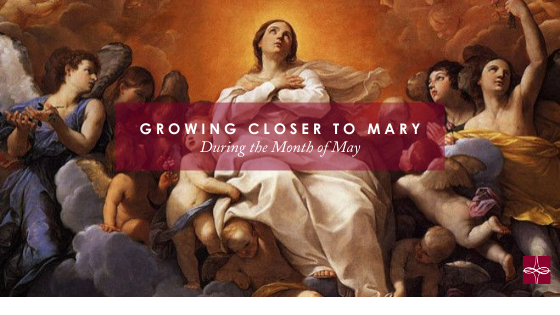
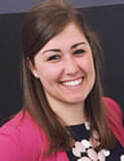
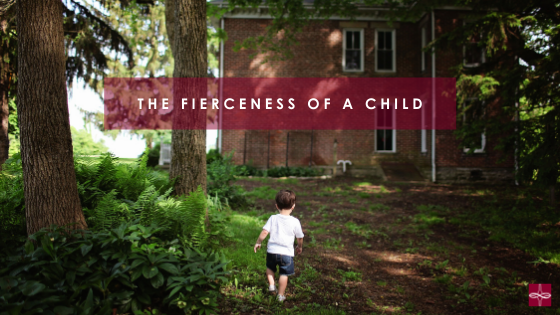

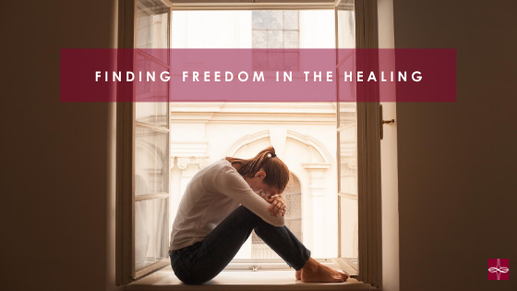



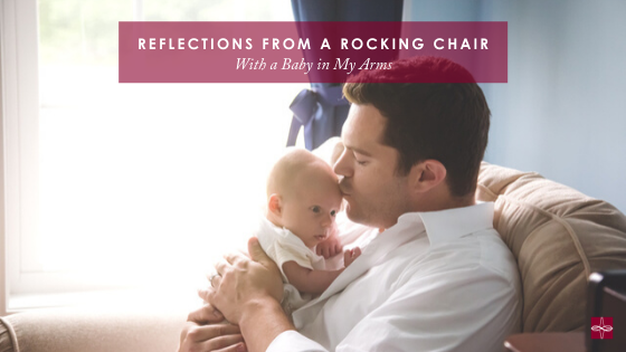
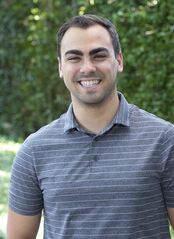
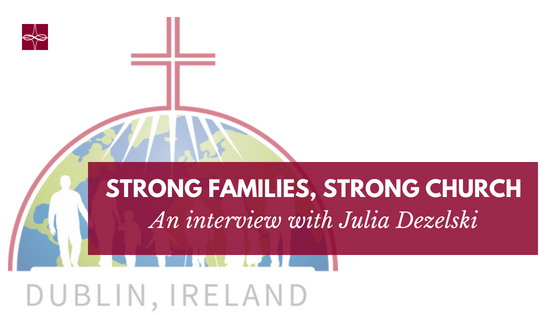
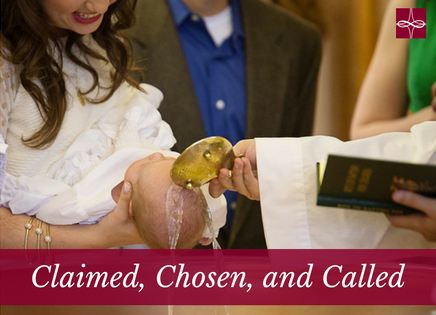


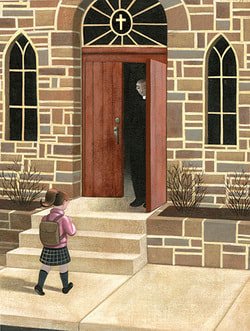


 RSS Feed
RSS Feed